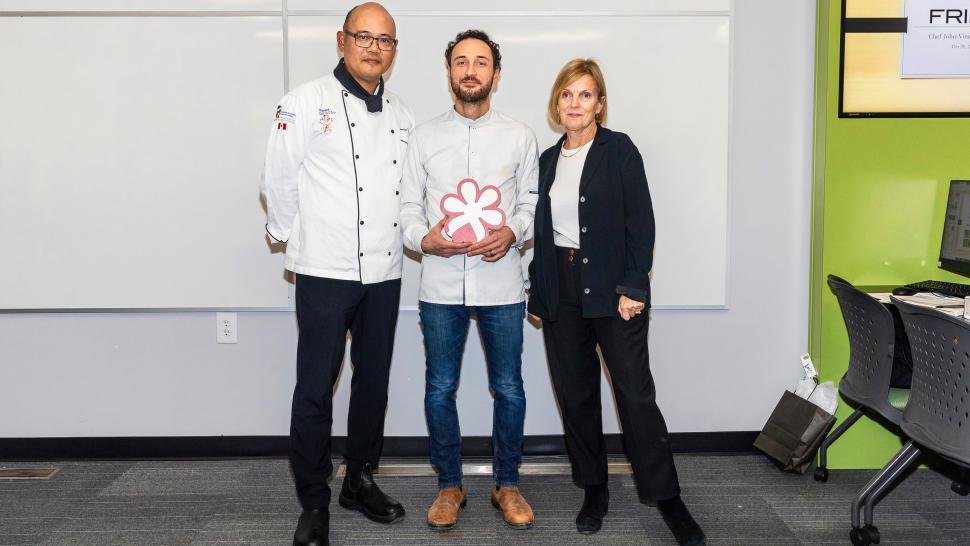
It’s not every day the executive chef and owner of a Michelin star-rated restaurant comes to speak to your class.
But, that’s exactly what happened for students in Humber College’s Culinary Management program when John-Vincent Troiano from Frilu stopped by to talk to the students. Troiano graduated from Humber's Culinary Management program in 2006.
Earlier this year, the Michelin Guide unveiled its inaugural list of Toronto restaurants. Frilu, which specializes in a tasting menu that changes with the seasons, was included on the prestigious list after being awarded one star.
Troiano was at Humber to speak with the students about menu concepts and development, as well as sustainability.
For Frilu’s menu, they embrace the farm-to-table concept. Troiano and his wife own Willowolf Farm in Tottenham and the produce they grow at the farm is used at the restaurant.
As he noted, their hope is to be as local as possible with their ingredients.
“The farm inspires the restaurant’s menu,” said Troiano, adding guests are getting the produce at its peak when they eat at Frilu.
During his visit, Troiano showed a menu from last year and walked the students through it. He said descriptions of their dishes on the menu are minimal and that’s done deliberately to pleasantly surprise guests when the food arrives and to give the kitchen some flexibility to respond to unforeseen circumstances – for example not receiving their expected ingredients.
He explained the idea behind a few dishes including Pumpkin Patch – a souffle of pumpkin, onions, spices, bone marrow and other ingredients served in a hollowed out pumpkin shell with sourdough bread. He spoke about it being visually engaging for guests and that it’s an example of the restaurant using what’s available in season to create a “fall-centric” dish that ties in with Frilu changing the menu to coincide with the seasons.
He also talked about the dish Pulling Weeds. Troiano said it’s designed to look like a potted weed but that it “has a sense of play and humour” to it that the guests tend to enjoy, adding most of his visitors have a smile when it arrives at the table.
The students had plenty of questions for him about his menu and his Thornhill restaurant and Troiano took time to answer them all, adding he has fond memories of his time at Humber and his instructors – including Francisco Rivera who had invited him to come speak to the class.
The restaurant only seats 14 people each evening and it’s reservation only. Troiano told the aspiring chefs this helps them control their costs and food waste.
Troiano describes his restaurant as Canadian contemporary with some aesthetics and techniques that are Asian influenced. It’s a recipe that has now found international recognition.
He shared a story with the students about the day the Michelin Guide came out that speaks to the popularity of the program. His phone kept buzzing over and over and, when he checked it to find out what all the commotion was, it turns out it was scores of people looking for reservations or those aspiring to work at Frilu sending in job applications.